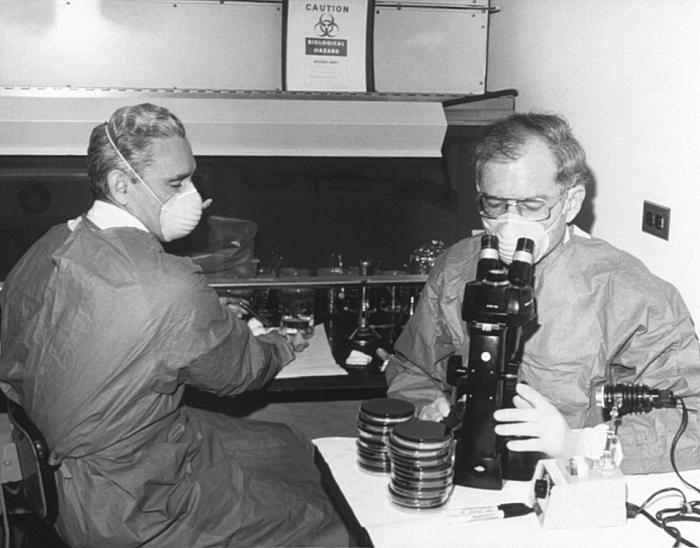|
Death Of Helen Bailey
In August 1975, the body of eight-year-old Helen Bailey was found in Great Barr, Birmingham, England. Her death was originally classified as being due to undetermined causes, potentially originating from an "accident or practical joke gone wrong" despite her body being found in a secluded area with her jugular vein severed. The original verdict into Bailey's death was overturned and replaced with one of unlawful killing in 2019. Bailey's killer has not been identified, although several investigators believe the perpetrator to be a suspect who confessed in the late 1970s to having strangled then cut her throat, as well as divulging forensic details of the killing not revealed in the original 1976 inquest. Officially, the case of Bailey's death remains unsolved. Contemporary media accounts dubbed Bailey "Little Girl Blue" as she was dressed entirely in blue at the time of her death. Background Helen Louise Bailey was born in Birmingham on 5 March 1967. She lived in Booth ... [...More Info...] [...Related Items...] OR: [Wikipedia] [Google] [Baidu] |
Booths Farm
William Booth (1776–1812) was an English farmer and forger, who was hanged for his crimes. He is the subject of the song "Twice Tried, Twice Hung, Twice Buried" by Jon Raven and a book. Several geographical features in Birmingham, near his former home, carry his name. Early life Booth was born at Hall End Farm near Beaudesert, Warwickshire and was baptised at the church there on 21 February 1776. He was one of eight children of a farmer and church warden, John Booth, and his wife Mary. On 28 February 1799, Booth signed a 25-year lease for what became known (by 1821 if not earlier) as "Booth's Farm", including a farmhouse and 200 acres of land, part of the Perry Hall estate. The farm was then in Perry Barr, Staffordshire; that part of Perry Barr is now known as Great Barr, and is in the city of Birmingham. Booth, then descried as a yeoman, was accused of murdering his brother John while revisiting Hall End on 19 February 1808, but was acquitted for lack of evidence. Crimi ... [...More Info...] [...Related Items...] OR: [Wikipedia] [Google] [Baidu] |
West Midlands Police
West Midlands Police is the territorial police force responsible for policing the metropolitan county of West Midlands (county), West Midlands in England. The force covers an area of with 2.93million inhabitants, which includes the cities of Birmingham, Coventry, Wolverhampton and also the Black Country. In 2020, there were 6,846 officers, 484 police community support officers (PCSO), and 219 volunteer special constables. The force is led by Chief Constable Craig Guildford. The force area is divided into ten #Local Policing Units, Local Policing Areas (LPAs), each being served by four core policing teams – #Response, Response, #Neighbourhood teams, Neighbourhood, #Investigation teams, CID and #Priority Crime Teams , Priority Crime (PCT) – with the support of a number of specialist crime teams. These specialist teams include #Major Crime Unit, MCU, #Roads Policing Department, traffic and a #Firearms, firearms unit. West Midlands Police was a partner, alongside Staffordsh ... [...More Info...] [...Related Items...] OR: [Wikipedia] [Google] [Baidu] |
Homicide
Homicide is an act in which a person causes the death of another person. A homicide requires only a Volition (psychology), volitional act, or an omission, that causes the death of another, and thus a homicide may result from Accident, accidental, Reckless homicide, reckless, or Negligent homicide, negligent acts even if there is no Intent (law), intent to cause harm. It is separate from suicide. Homicides can be divided into many overlapping legal categories, such as murder, manslaughter, justifiable homicide, assassination, killing in war (either following the laws of war or as a war crime), euthanasia, and capital punishment, depending on the circumstances of the death. These different types of homicides are often treated very differently in human Society, societies; some are considered crimes, while others are permitted or even Court order, ordered by the Law, legal system. Criminality Criminal homicide takes many forms, including accidental killing and murder. Criminal ho ... [...More Info...] [...Related Items...] OR: [Wikipedia] [Google] [Baidu] |
Accidental Death
An accidental death is an unnatural death that is caused by an accident, such as a slip and fall, traffic collision, or accidental poisoning. Accidental deaths are distinguished from death by natural causes, disease, and from intentional homicides and suicide. An accidental death can still be considered a homicide or suicide if a person was the unintentional cause. For criminal purposes, intentional homicides are usually classified as murder. Exceptions such as self-defense vary by jurisdiction, and in some cases, persons accused of murder have asserted as a defense that the deceased was actually the victim of an accidental death, rather than an intentional act. However, a person who is responsible for the accidental death of another through negligence may still be criminally liable for manslaughter, and civilly liable for wrongful death. Accidental death and dismemberment insurance and similar insurance policies pay a benefit in the event of accidental death, With these po ... [...More Info...] [...Related Items...] OR: [Wikipedia] [Google] [Baidu] |
Loitering
Loitering is the act of standing or waiting around idly without apparent purpose in some public places. While the laws regarding loitering have been challenged and changed over time, loitering of suspect people can be illegal in some jurisdictions and some specific circumstances. Prohibition and history While not being a crime by itself, loitering has historically been treated as an inherent preceding offense to other forms of public crime and disorder, such as prostitution, begging, public drunkenness, dealing in stolen goods, drug dealing, scams, organized crime, robbery, harassment/mobbing, etc. Loitering provides a lesser offence that can be used by police to confront and deter suspect individuals from lingering in a high-crime area, especially when criminal intent is suspected but not observed. Local areas vary on the degree to which police are empowered to arrest or disperse loiterers; limitations on their power are sometimes made over concerns regarding racial pr ... [...More Info...] [...Related Items...] OR: [Wikipedia] [Google] [Baidu] |
Eyewitness Testimony
Eyewitness testimony is the account a bystander or victim gives in the courtroom, describing what that person observed that occurred during the specific incident under investigation. Ideally this recollection of events is detailed; however, this is not always the case. This recollection is used as evidence to show what happened from a witness' point of view. Memory recall has been considered a credible source in the past, but has recently come under attack as forensics can now support psychologists in their claim that memories and individual perceptions can be unreliable, manipulated, and biased. As a result of this, many countries, and states within the United States, are now attempting to make changes in how eyewitness testimony is presented in court. Eyewitness testimony is a specialized focus within cognitive psychology. Reliability Psychologists have probed the reliability of eyewitness testimony since the beginning of the 20th century. One prominent pioneer was Hugo Münsterb ... [...More Info...] [...Related Items...] OR: [Wikipedia] [Google] [Baidu] |
Motive (law)
A motive is the cause that moves people to induce a certain action. In criminal law, motive in itself is not an element of any given crime; however, the legal system typically allows motive to be proven to make plausible the accused's reasons for committing a crime, at least when those motives may be obscure or hard to identify with. However, a motive is not required to reach a verdict.Law Library - American Law and Legal Information - JRank Articles. (n.d.). Retrieved October 14, 2014. Motives are also used in other aspects of a specific case, for instance, when police are initially investigating. The law technically distinguishes between motive and intent. "Intent" in criminal law is synonymous with ''mens rea In criminal law, (; Law Latin for "guilty mind") is the mental state of a defendant who is accused of committing a crime. In common law jurisdictions, most crimes require proof both of ''mens rea'' and '' actus reus'' ("guilty act") before th ...'' ('guilty mind') ... [...More Info...] [...Related Items...] OR: [Wikipedia] [Google] [Baidu] |
Sexual Assault
Sexual assault is an act of sexual abuse in which one intentionally Physical intimacy, sexually touches another person without that person's consent, or Coercion, coerces or physically forces a person to engage in a sexual act against their will. It is a form of sexual violence that includes child sexual abuse, groping, rape (forced sexual penetration, no matter how slight), drug facilitated sexual assault, and the torture of the person in a sexual manner. Definition Generally, sexual assault is defined as unwanted sexual contact. The National Center for Victims of Crime states: In the United States, the definition of sexual assault varies widely among the individual states. However, in most states sexual assault occurs when there is lack of consent from one of the individuals involved. Consent must take place between two adults who are not incapacitated and consent may change, by being withdrawn, at any time during the sexual act. Sexual assault can be defined as viola ... [...More Info...] [...Related Items...] OR: [Wikipedia] [Google] [Baidu] |
Pathologist
Pathology is the study of disease. The word ''pathology'' also refers to the study of disease in general, incorporating a wide range of biology research fields and medical practices. However, when used in the context of modern medical treatment, the term is often used in a narrower fashion to refer to processes and tests that fall within the contemporary medical field of "general pathology", an area that includes a number of distinct but inter-related medical specialties that diagnose disease, mostly through analysis of tissue and human cell samples. Idiomatically, "a pathology" may also refer to the predicted or actual progression of particular diseases (as in the statement "the many different forms of cancer have diverse pathologies", in which case a more proper choice of word would be " pathophysiologies"). The suffix ''pathy'' is sometimes used to indicate a state of disease in cases of both physical ailment (as in cardiomyopathy) and psychological conditions (such as ps ... [...More Info...] [...Related Items...] OR: [Wikipedia] [Google] [Baidu] |
Home Office
The Home Office (HO), also known (especially in official papers and when referred to in Parliament) as the Home Department, is the United Kingdom's interior ministry. It is responsible for public safety and policing, border security, immigration, passports, and civil registration. Agencies under its purview include police in England and Wales, Border Force, UK Visas and Immigration, the Visas and Immigration authority, and the MI5, Security Service (MI5). It also manage policy on drugs, counterterrorism, and immigration. It was formerly responsible for His Majesty's Prison Service and the National Probation Service, but these have been transferred to the Ministry of Justice (United Kingdom), Ministry of Justice. The Cabinet minister responsible for the department is the Home Secretary, home secretary, a post considered one of the Great Offices of State; it has been held by Yvette Cooper since July 2024. The Home Office is managed from day to day by a civil servant, the Per ... [...More Info...] [...Related Items...] OR: [Wikipedia] [Google] [Baidu] |
Post-mortem
An autopsy (also referred to as post-mortem examination, obduction, necropsy, or autopsia cadaverum) is a surgical procedure that consists of a thorough examination of a corpse by dissection to determine the cause, mode, and manner of death; or the exam may be performed to evaluate any disease or injury that may be present for research or educational purposes. The term ''necropsy'' is generally used for non-human animals. Autopsies are usually performed by a specialized medical doctor called a pathology, pathologist. Only a small portion of deaths require an autopsy to be performed, under certain circumstances. In most cases, a medical examiner or coroner can determine the cause of death. Purposes of performance Autopsies are performed for either legal or medical purposes. Autopsies can be performed when any of the following information is desired: * Manner of death must be determined ** Determine if death was natural or unnatural ** Injury source and extent on the corpse ... [...More Info...] [...Related Items...] OR: [Wikipedia] [Google] [Baidu] |







